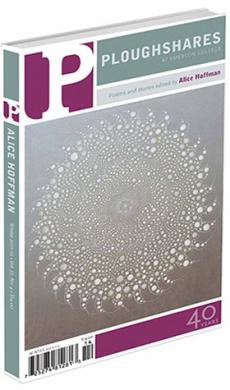Review: Unseen Hand
Adam Zagajewski’s newest collection of poems touches on many of the motifs and themes that his poetry is known for. The book is divided into three parts, very carefully arranged, almost like a musical composition. Certain subjects introduced in the first section reappear later in several variations, like Joseph Street in the Krakow Jewish quarter, the river Garonne, and self-portraits. Several of the poems talk about the difficult art of poetry and explore the antinomies of the endeavor.
Zagajewski’s voice here is his usual one, quiet and gentle, but the tone of the book is more wistful, somewhat weary, with more silences within and without, punctuated by the poet’s intimations of his own mortality. The collection contains strong personal and private notes with many reminiscences of the poet’s childhood, his family, and beautiful and moving tributes to his father, who opened his “imagination like a demiurge” (“Now That You’ve Lost Your Memory”). Mourning the elder man’s decline, the poet recalls their hikes in the mountains, his father’s reading “To Go to Lvov,” the green windbreaker he wore on his trips to Paris, all the moments and details that are the warp and woof of memory.
Some poems here are laments for those who are gone—“candles for my dead”—like “Paintings” for Zbylut Grzywacz, the poet’s painter-friend, or “Wall” for Henryk Bereska, a German translator of Polish literature. But the meditations on absence, loss, and all-devouring time are only one facet of the book’s tonality. Zagajewski may be aware that “life dwindles” (“The Lovely Garonne”), but his insatiable appetite for “all this great, strange world” hasn’t diminished. The book’s landscape is concrete, rich, and varied: “strawberry ice-cream melts on the asphalt”; “children play in the sandbox”; “gray sparrows and dapper starlings / still squabble heatedly.” The lens scans many different places: Gliwice, Berlin, a Zbigniew Herbert conference in Siena, a train to Warsaw, the Chicago Philharmonic, the Krakow Botanic Garden, Ravenna—not surprisingly, given Zagajewski’s geographically complicated biography and extensive travels.
An ardent realist, “slightly sober / and a little touched,” the poet observes the world closely, knowing that only the union of an eye and a heart may lead to an immortal moment when one of the world’s “zealously kept secrets is revealed” (“Swifts Storming St. Catherine’s Church”). This sober and tender observer relentlessly seeks “the flame of rapture / pretty much everywhere, even in the budget theater / the train, and almost every café,” since he knows that “the unseen things take flesh” in the quotidian and the ordinary. Talking about his parents’ favorite Polish poet, Konstanty Ildefons Galczynski (“K.I.G”), Zagajewski says that trying to salvage “that unseen something / … may become / the quiet, patient hymn of life.”
Unseen Hand is just such a patient hymn. The book’s last poem, “Carts,” ends on a powerful note of affirmation: “But that world. / Suitcases packed. / Sing for it, oriole, / dance for it, little fox, / catch it.”
The collection is adroitly translated by Clare Cavanagh, and I would have loved for this review to continue on a positive note. Unfortunately, the book exhibits some characteristics of sloppy editing. Either the translator or the editor should have paid more attention to the galleys. One poem in particular shows an egregious oversight. In “Vita Contemplativa,” six lines are missing from the middle of the poem; in Polish it has four stanzas, in English only three. The “pergaminowe twarze”—“parchment faces” in the Polish original—have been changed to “Pergamon faces,” which might seem logical to an English reader since the poem talks about the Pergamon Museum. It’s surprising that a publisher as renowned as Farrar, Straus and Giroux could be guilty of such carelessness.
Ewa Hryniewicz-Yarbrough is a translator and an essayist. Her most recent book of translations is They Carry a Promise by Janusz Szuber (Knopf 2009).

